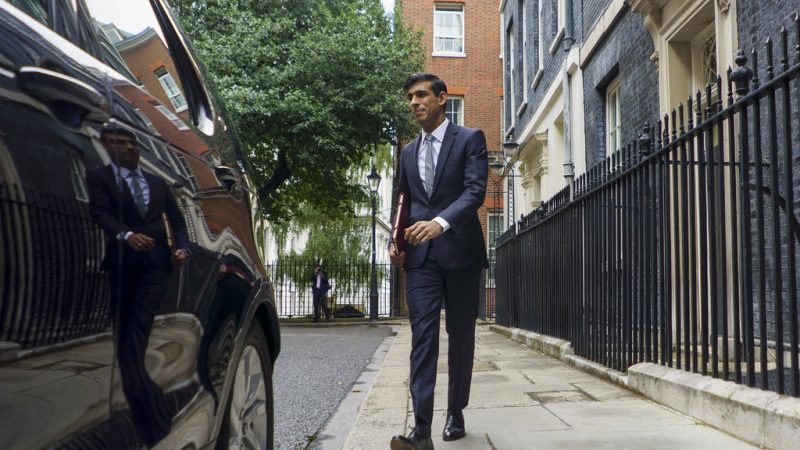"Yet more debt, which many will struggle to repay, is not the right way to help struggling businesses at this time."

Concerns are growing about a potential debt bubble among Britain’s small businesses, after the Treasury extended its coronavirus support loan schemes.
On Monday, the government confirmed it would be extending Bounce Back Loans and other forms of cheap lending by another two months, giving companies until the end of January to apply.
Billions more in bounce back loans (BBLS), coronavirus business interruption loans (CBILS) and the CLBILS scheme for larger firms could now be made – leading to worries that Britain’s businesses are being loaded up on debt they won’t be able to repay.
The Bounce Back Loan Scheme was set up to enable smaller businesses to access finance more quickly during the coronavirus outbreak, with the government covering the first year of interest payments. However, the loans must still be repaid – and interest is added after the first year.
Fran Boait, executive director of Positive Money, is among those warning of a debt bubble: “We should be wary of banks’ sudden keenness to pile on more debt to small businesses…
“Yet more debt, which many will struggle to repay, is not the right way to help struggling businesses at this time. Debt should be for investment, while emergency support should take the form of grants and other direct assistance.”
A National Audit Office investigation in October found that banks are expected to receive more than £1bn from the first year of interest payments on Bounce Back Loans – a figure that will rise as more loans are issued. Interest is set at 2.5% a year, but the loans can last for up to ten years.
Switzerland’s government guaranteed loan scheme, which the Bounce Back Loan Scheme was based on, forbids banks from charging interest on loans under 500,000 Swiss Francs (£420,000).
The SNP has previously raised concerns about how struggling companies will be forced to repay the debt. The party’s Shadow Business Secretary Drew Hendry MP said: “The current debt recovery guidance for the Bounce Back Loan Scheme (BBLS) is unbearably vague. The Chancellor must establish exactly what the ‘appropriate recovery process’ is…
“I am also urging the Chancellor to write down BBLS debts for firms not yet delinquent but struggling – this would provide a lifeline for many businesses who just need a helping hand to get through this pandemic. Rishi Sunak promised to do whatever it takes to protect the economy – I am calling on him to live up to that promise by taking the action I have set out in my letter.”
The Bounce Back loan scheme provides registered and unregistered businesses with loans of up to £50,000, or a maximum of 25% of annual turnover. As of 6th September, the Scheme delivered more than 1.2 million loans to businesses, totalling £36.9 billion, according to the National Audit Office.
But the government has been warned the loan scheme is at “very high risk of fraud” from organised crime. Taxpayers could lose up to £26bn through fraud or companies’ inability to repay.
Josiah Mortimer is co-editor of Left Foot Forward.
Image credit: No 10
To reach hundreds of thousands of new readers we need to grow our donor base substantially.
That's why in 2024, we are seeking to generate 150 additional regular donors to support Left Foot Forward's work.
We still need another 117 people to donate to hit the target. You can help. Donate today.



